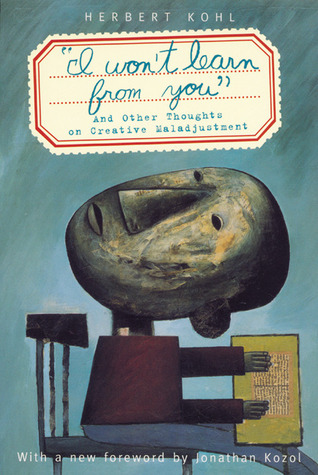Free Write
“Empowering Education: Critical
Teaching for Social Change”
Ira Shor

After
reading the Shor article all I wanted to do is give it to each and every
teacher, principle, and teacher I have ever had. I feel like a large number of
teachers do not realize that the current school system isn't politically neutral
and it disconnects student’s development as critical thinkers about their
world. I find the concept of asking your students to question their education experience
and believe that we do not live in a fixed world that is fine the way it is. One
of the goals in education I believe should be to educate students that they are
capable and should never believe that the way the world currently is, is the
way it has to be. I think it is important for students to understand that they
play a huge role in changing the world we live in.
I
found it extremely interesting when reading about a teacher provide syllabus. Personally
I had never thought about the impact a course syllabus could have on a student.
Seeing a syllabus as a prolonged encounter with structured knowledge and social
authority makes me look at them completely differently. If you think about it
is a list of to-do’s and grades you should get. It is kind of like being an
employee of a big business in a sense. You are given a list of things to do and
if you don’t do them correctly or up to par you will be reprimanded for it,
either through loss of pay or not getting a promotion. Though students have a
choice as to what extent of the syllabus they take part in and are able to form
those aspects chosen. A student does this by applying themselves to some assignments,
quizzes and tests, but not all of them listed on the syllabus. The grading of
the students school work typically reflects which assignment’s, quizzes, or
tests the individual applied themselves to in comparison to the school work the
student didn't apply themselves to. I feel like it makes a lot of sense for
students who reject the idea of a prolonged encounter with structured knowledge
and social authority by not responding to knowledge, processes, or roles set
out for class. Rejection can result in the student reacting by, dropping out, withdrawing
into passivity or silence in the classroom, self-educating, and in some cases
even sabotaging the curriculum by misbehaving.
I
personally agree with parts of the idea of education being a social experience.
I think it is important to educate students on our current society, the
meanings of past events, and that there is always a possibility for the future
and their place in the world they live in. Most importantly when it comes to
educating these topics it is important for the teacher to present the knowledge
as critical inquiry into power and knowledge as they relate to students experiences.
I think connecting a student’s personal experiences to current, past, and
futuristic events can help the student understand what is being taught and discussed,
as well as, to realize that they can make a difference in this world and that
things don’t always have to be the way they currently are.
I just wanted to end this post by quoting
one of my favorite quotes out of this text;
“Education
is more than learning skills; it is a socializing experience that helps make
the people who make up our society.” (Page. 16)














 When attending
school Richard also experienced discrimination. One form of racism like women
and men in the work place is when a student is bilingual. Some teachers target
students like Richard in the classroom because they don’t speak English, making
the student feel very uncomfortable and little to no confidence in themselves. Due
to the fact that Richard would have been labeled as a child with a “learning disability”,
he was made to feel as though there was something wrong with him and he wasn’t like
the other children. Johnson has said that English is the dominant language, and
that if you are unable to participate in what dominants, then you are
discriminated upon.
When attending
school Richard also experienced discrimination. One form of racism like women
and men in the work place is when a student is bilingual. Some teachers target
students like Richard in the classroom because they don’t speak English, making
the student feel very uncomfortable and little to no confidence in themselves. Due
to the fact that Richard would have been labeled as a child with a “learning disability”,
he was made to feel as though there was something wrong with him and he wasn’t like
the other children. Johnson has said that English is the dominant language, and
that if you are unable to participate in what dominants, then you are
discriminated upon.